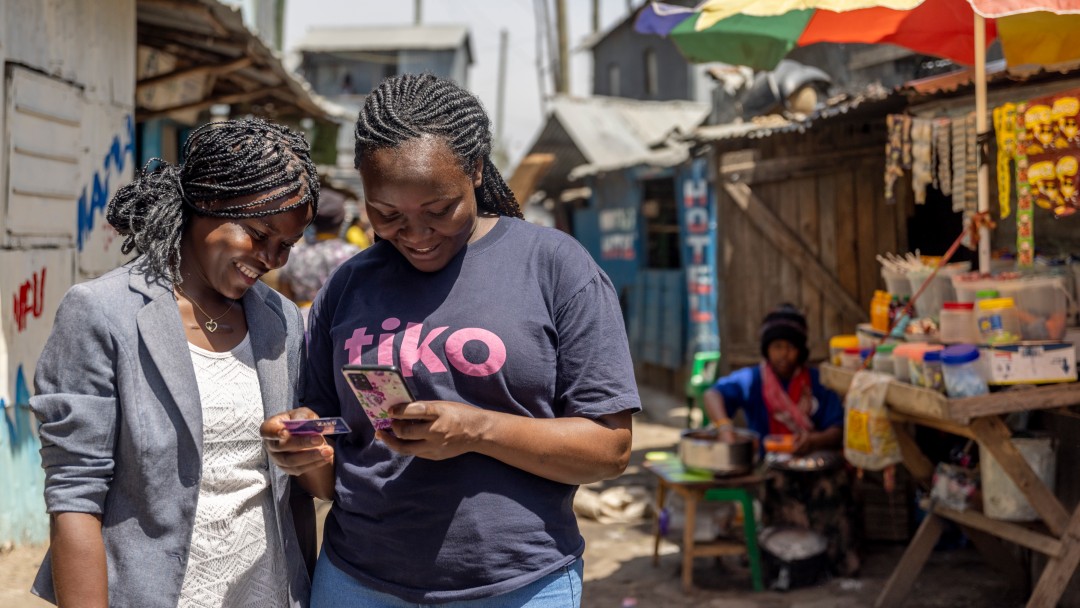
No training, no job and no opportunities to play sports or make music. Young poor people in Kenya often decide to start a family at a very early age due to a lack of prospects. There are many early pregnancies as contraceptives are difficult to obtain. The VIVA programme supported by KfW on behalf of the German Federal Government is tackling the problem with various approaches.
VIVA’s aim is to escape the vicious circle of poverty, early pregnancy and a lack of education. The programme supports young people in the poor neighbourhoods of Nairobi, Mombasa and Kisumu by ensuring that they can access services in state and private healthcare facilities free of charge. Plus, the specialists at the facilities are trained to deal with the particular situation of young people in an understanding and sensitive manner.
Assistance is offered in family planning and on the topic of alcohol and drug use. The young people also receive free contraceptives and other health services in the area of reproductive health. In addition, they can take advantage of leisure activities, take courses and continue their education. The programme covers youth meetings to sports activities, sewing and cooking courses and technical training, for example in vehicle mechanics.
Also in Kenya the easiest way to reach young people is through online platforms. Interested parties register on a website or by text message and then they receive access via a voucher through the app or as a chip card to the comprehensive range of services offered by the VIVA programme, including contraceptives. VIVA’s offers are advertised in youth clubs, social media and popular youth magazines. Promoters – young people who have already completed the VIVA programme – also share information about it.
The German Foundation for World Population (DSW), an international non-governmental organisation, is implementing the programme through its Kenyan partner Youth for a Sustainable World (YSW) by raising awareness of VIVA and offering educational seminars and further training courses. The online platform and associated app are being created by the Dutch social enterprise Tiko.
The programme, which has been active since 2022, aims to improve the sexual and reproductive health of young people and generally equip them with more skills and knowledge by linking sport, professional qualifications and educational work. It appeals to people between the ages of 15 and 24, especially those from poor residential neighbourhoods, and ist already having an impact: More than 70,000 young people from Kenya have already registered on the site, and the number is expected to rise to around 100,000 by the end of 2025. Almost 140,000 young people had used health services by December 2024, and almost 82,000 young people had attended reproductive health classes.
At least 4,500 young people – almost two-thirds of these being girls and young women – are also expected to have attended vocational training courses by the end of 2025. The aim is that about 3,000 of them will have found a job no later than six months after their training. 18,000 young people are expected to have participated in sports and other leisure activities during the same period.
The programme gives young people the prospect of earning their own income and more self-determination to make decisions about their lives. Girls and young women in particular have greater freedom to go their own way.
Share page
To share the content of this page with your network, click on one of the icons below.
Note on data protection: When you share content, your personal data is transferred to the selected network.
Data protection
Alternatively, you can also copy the short link: https://www.kfw-entwicklungsbank.de/s/enzBro_B
Copy link Link copied